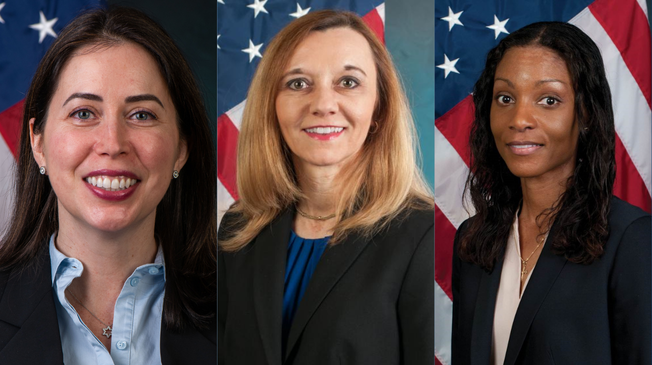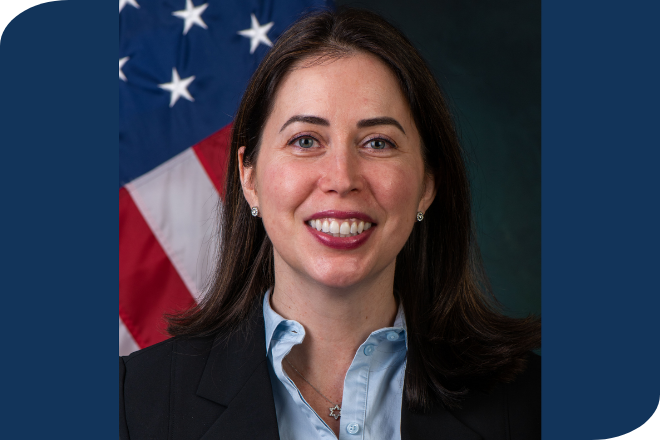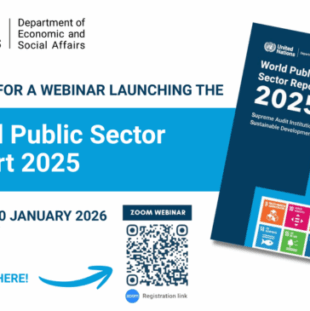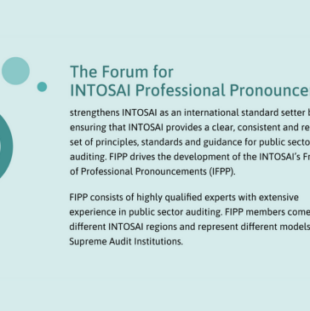INTOSAI Journal Welcomes New Members to Board of Directors

In 2024, the INTOSAI Journal welcomed three new members to its Board of Directors. The new board members bring a wealth of expertise to the Journal and will play a key role in steering its strategic direction moving forward, as well as provide stewardship of the Journal’s resources.
Sarah Kaczmarek

Sarah Kaczmarek is the Managing Director of the Office of Public Affairs. The office handles external communications for the agency and the U.S. Comptroller General.
Sarah serves as GAO’s spokesperson and top communications advisor to the Comptroller General. She oversees GAO’s strategic communication for public facing initiatives, including the agency’s public website, social media platforms, multimedia services, and plain writing efforts. She also oversees all media engagements across GAO.
Sarah holds a master’s degree from Georgetown University School of Foreign Service, and a bachelor’s degree from Wellesley College. She is a Harvard Senior Executive Fellow, a Cornell Executive Leadership certificate holder, and an Excellence in Government Fellow with the Partnership for Public Service. She was also an adjunct faculty lecturer in communications at the Georgetown University School of Continuing Studies.
What are you looking forward to as an INTOSAI Journal Board member, and also in regards to engagement with the INTOSAI community?
As an INTOSAI Journal Board member, I look forward to advancing the Journal’s role as a platform to share knowledge, best practices, and innovation across SAIs. Because INTOSAI members work across a variety of dynamic and complex environments, it is vital that we leverage tools like the Journal to learn from one another. Engaging with the INTOSAI community excites me as an opportunity to strengthen connections across all SAIs. I am particularly eager to support initiatives on effective communication in a changing media landscape, digital accessibility, and plain language. I look forward to learning from our partner institutions as we navigate new trends in public communications that promote independent, evidence-based audits.
In your expertise, what do you foresee as emerging issues in the near future for the public sector auditing community globally?
I see expanding plain language initiatives across SAIs as an important emerging issue. Auditing and evaluation can sometimes involve very technical reports. These independent and objective reports are vital to promoting effectiveness and efficiency in the public sector. However, to expand our collective impact we must find ways to connect with broader audiences. Plain language initiatives are central to this. Innovative report types, improved digital accessibility, and a focus on user experience will go a long way to promote all our work. At the end of the day, the more accessible we can make our work to a variety of audiences, the more we can do to promote transparency and accountability globally.
Michelle Sager

Michelle Sager is the Managing Director of GAO’s Strategic Issues team. She oversees work on government-wide governance, strategy, performance, and resource issues—including the High Risk program and the annual Duplication, Overlap and Fragmentation reports.
Michelle first joined GAO in 1998. Her work at GAO has included a broad range of policy issues including intergovernmental, evidence-based policy, open data, budget, regulatory, international trade, and postsecondary education. Michelle left GAO in 2016 to accept a position as Director of the Economic Opportunity Division in the nonpartisan nonprofit organization, National Governors Association Center for Best Practices. She returned to GAO in 2018. Her prior experience also includes adjunct faculty, research, and legislative staff positions.
Michelle’s GAO experience includes working with INTOSAI’s Task Force on Financial Foresight (2011-2013) and Strategic Planning Task Forces (2013-2016) and (2019-2022). These experiences provided unparalleled opportunities to learn from counterparts around the world while furthering an appreciation for the importance of public sector oversight in varied national contexts.
Michelle earned a doctorate degree in public policy and a master’s degree in international commerce and policy from George Mason University. Michelle earned a bachelor’s degree in communications and political science from Truman State University.
What are you looking forward to as an INTOSAI Journal Board member, and also in regards to engagement with the INTOSAI community?
I look forward to helping the INTOSAI Journal continue to evolve as a resource to inform and connect the public sector accountability community. The INTOSAI community is a tremendous resource for all Supreme Audit Institutions. It is a privilege to continue to be engaged with thoughtful, innovative and inspiring colleagues around the world as we strive to promote good governance.
In your expertise, what do you foresee as emerging issues in the near future for public sector auditing community globally?
Threats to independence, diminished trust in public institutions, evolving techniques for performance and financial auditing, and the use of AI are just a few of the emerging issues that provide challenges and opportunities for the public sector auditing community. Fortunately, INTOSAI’s motto—mutual experience benefits all—continues to serve as a reference point for the organization and a guidepost for how SAIs come together to engage, learn from each other, and leverage leading practices.
Toni Gillich

What are you looking forward to as INTOSAI Journal Secretary, and also in regards to engagement with the INTOSAI community?
I love speaking with other auditors and other jurisdictions and being able to highlight their work. We learn so much from one another: our triumphs and victories, and also when we share our mistakes or have the benefit of hindsight. I look forward to being a part of a platform where we do those things.
What do you foresee as emerging issues in the near future for public sector auditing community globally?
There is an increasing need of a public response for global illicit activity, scams and fraud, and a process for determining what appropriate responses should be. These will vary by society and country—some countries’ governments will have or want more or less involvement in regulating financial markets,.
Auditors will be able to take on emerging issues by continuing to hone their fundamental analytic skills. It is important for us to understand the fundamentals of auditing, and get back to the basic tenants of identifying cause, criteria, condition and effect. It is also important for auditing organizations to have diversity of thought, skills, and perspectives in an auditing organization, because it only makes it stronger.
Read our full interview with Toni from a previous news article here.





